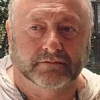"Russkiy Mir" Revival of Russian/Soviet imperialism?
In
Log in if you are already registered
Comment on Brian Whitmore's RFE/RL podcast, “The Daily Vertical: Return Of The Russian World> http://www.rferl.org/content/daily-vertical-return-of-russian-world/27340254.html
Not much understanding of Russkiy Mir or its role in Russian foreign policy in this podcast.
Russkiy Mir is often represented as some new, strange, perhaps threatening concept cooked up in the Russian Foreign Ministry as part of a new Russian imperial project. Not so! Russkiy Mir existed long before even the Soviet Union. It was a product of the Russian Empire, but now exists independently on an entirely voluntary basis. It has no need of a Russian empire. Russkiy Mir is a world-wide community of people who feel themselves, to varying degrees, part of a multi-ethnic, trans-ethnic Russian Civilization. "Russian" means much more than just an ethnicity, and it is not a "Kremel'skiy Mir," nor is it linked to citizenship in the Russian Fedration. True, "Russkiy Mir" may represtent a threat to the xenophobic ideological ethno-cultural political nationalisms that emerged with fury after the collapse of the Soviet Union. This explains why ideological nationalists can get so upset by the very idea of "Russkiy Mir." Nevertheless, all the talk about Russkiy Mir being part of a project to reconstruct the Soviet Union or Russian Empire is nonsense.
RUSSKIY MIR AS A CONCEPT: At the Canadian university where I used to teach, there were some clubs bringing together students sharing national roots. There was a Polish Club, a Serbian Club, a Ukrainian Club (typically third generation, interested in folklore and, language and the likes). There was also a club that never settled on a name. It met once or twice a semester for Chai. The largest part of the group were Ukrainians. There were Belarusians, Kazakhs, Moldavans, and occasionally students from other former Soviet republics. Most were proud of the independent states from which they came, yet ethnic background meant little in this group. This is typical of communities sharing Russian language and civilization. The "real" Russians in our Chai group (those from the Russian Federation), did not even stand out as different. Russian-speaking communities in Brighton Beach, Toronto, and elsewhere are like our Chai group. They are not "Russian" in the sense of an ethnic group. They are little Russkiy Mirs.
In the former Soviet republics, not only Russians, but many with mixed background live together in the medium of Russian culture and civilization. Most Russians who still live in these countries have already decided not to move to Russia. When I ask if they want their country to be part of Russia, they usually say "no.” Yet, when I ask if they feel like foreigners in Moscow, they also usually say "no." Many Ukrainians living and working in Russia retain strong Ukrainian identity, yet feel entirely at home in Russia. All of this suggests what "Russkiy Mir" is about.
FOREIGN POLICY: Whitmore’s tone and argument seem to represent Russkiy Mir as some kind of new, strange, perhaps threatening concept cooked up in the Russian Foreign Ministry as part of a new Russian imperial project. The implication is that "Russkiy Mir" appears, disappears and reappears with the ups and downs of imperial ambitions in the Russian leadership. Not so! Russkiy Mir existed long before even the Soviet Union, let alone the Russian Empire. An old Soviet joke sums it up: "What's your nationality?" My father is half Belarusian and half Jewish. My mother is one quarter Chuvash, one quarter Kalmyk, and half Ukrainian. Therefore I am Russian. “Russian” is not just an ethnicity, nor is it just a citizenship. It is a civilization.
In his 1993 article in NATO REVIEW, the strongly pro-Western first Russian Foreign Minister, Andrei Kozyrev, writes of the "situation of the Russian-speaking population in states of the former USSR" (read Russkiy Mir). He does not claim for Russia some special prerogative to speak for these people, though clearly speaking as an advocate for their cause. On the contrary—Kozyrev writes: "We are counting on support from the NATO member nations to help ensure protection for the rights, life and dignity of the Russian minorities."
Of course, NATO paid not the slightest attention to Kozyrev, or to Russia’s aspirations and interests at that time. This attitude partly explains why we now have such serious problems in our relations with Russia.
Russia is now stronger and more confident. Obviously, Russkiy Mir will always have some relationship to the Russian state, though the Kremlin could never dominate or control it. Russky Mir is potential capital for the Russian state, which it will no doubt seek to exploit. Never before in history has a Russian state existed with which Russkiy Mir abroad might actually want to associate. Russia's leaders have had time to start thinking about this old concept, in new circumstances. Yet, Russkiy Mir is no more strange or nefarious a concept than it was when Kozyrev wrote his article. It’s just that the Russian Federation is not as easy to ignore as it was in 1993.
Russkiy Mir is the world-wide community of people who feel themselves to belong in varying degree to Russian Civilization. They can be part of Russkiy Mir without any need for a reconstructed Russian Empire. However, Russia remains their civilizational center.
The talk about Russkiy Mir being part of a project to reconstruct the Soviet Union or Russian Empire is nonsense.




